Related Research Articles

The Free Church of England (FCE) is an episcopal church based in England. The church was founded when a number of congregations separated from the established Church of England in the middle of the 19th century.

The Church of Nigeria is the Anglican church in Nigeria. It is the second-largest province in the Anglican Communion, as measured by baptized membership, after the Church of England. It gives its current membership as "over 18 million", out of a total Nigerian population of 190 million.

The history of the Anglican Communion may be attributed mainly to the worldwide spread of British culture associated with the British Empire. Among other things the Church of England spread around the world and, gradually developing autonomy in each region of the world, became the communion as it exists today.
The Anglican Church of India (ACI) is a union of independent Anglican churches in India. It is not currently a member of the worldwide Anglican Communion whose titular leader is the Archbishop of Canterbury.
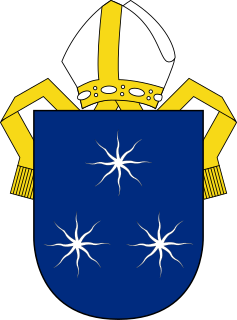
The Diocese of Auckland is one of the thirteen dioceses and hui amorangi of the Anglican Church in Aotearoa, New Zealand and Polynesia. The Diocese covers the area stretching from North Cape down to the Waikato River, across the Hauraki Plains and including the Coromandel Peninsula.
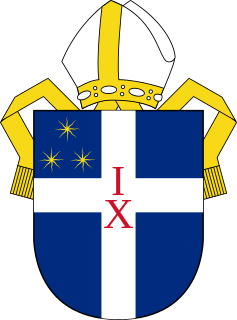
The Diocese of Christchurch is one of the thirteen dioceses and hui amorangi of the Anglican Church in Aotearoa, New Zealand and Polynesia. The Diocese covers the area between the Conway River and the Waitaki River in the South Island of New Zealand.
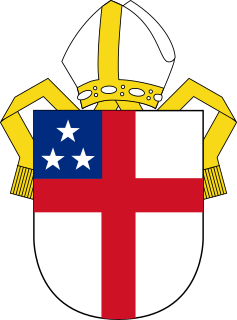
The Diocese of Wellington is one of the thirteen dioceses and hui amorangi of the Anglican Church in Aotearoa, New Zealand and Polynesia. The diocese covers the area between the bottom of the North Island of New Zealand up to the area of Mount Ruapehu.

The Diocese of Waiapu is one of the thirteen dioceses and hui amorangi of the Anglican Church in Aotearoa, New Zealand and Polynesia. The Diocese covers the area around the East Coast of the North Island of New Zealand, including Tauranga, Taupo, Gisborne, Hastings and Napier. It is named for the Waiapu River.
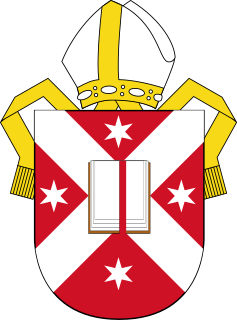
The Diocese of Dunedin is one of the thirteen dioceses and hui amorangi of the Anglican Church in Aotearoa, New Zealand and Polynesia. The diocese covers the same area as the provinces of Otago and Southland in the South Island of New Zealand. Area 65,990 km², population 272,541 (2001). Anglicans are traditionally the third largest religious group in Otago and Southland after Presbyterians and Roman Catholics.
The Diocese of Nelson is one of the 13 dioceses and hui amorangi of the Anglican Church in Aotearoa, New Zealand and Polynesia. The Diocese covers the northern part of the South Island of New Zealand, which is mostly the area north of a line drawn from Greymouth to Kaikoura.
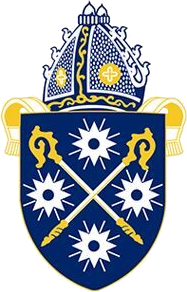
The Anglican Diocese of Perth is one of the 23 dioceses of the Anglican Church of Australia. The constitution of the Diocese of Perth was passed and adopted in 1872 at the first synod held in Western Australia. In 1914, the Province of Western Australia was created and the diocesan bishop of Perth became ex officio metropolitan bishop of the new province and therefore also an archbishop.

The Anglican ministry is both the leadership and agency of Christian service in the Anglican Communion. "Ministry" commonly refers to the office of ordained clergy: the threefold order of bishops, priests and deacons. More accurately, Anglican ministry includes many laypeople who devote themselves to the ministry of the church, either individually or in lower/assisting offices such as lector, acolyte, sub-deacon, Eucharistic minister, cantor, musicians, parish secretary or assistant, warden, vestry member, etc. Ultimately, all baptized members of the church are considered to partake in the ministry of the Body of Christ.
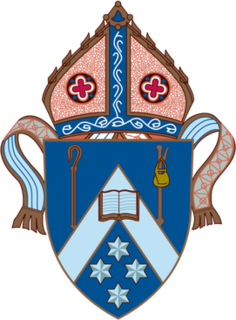
The Anglican Diocese of Melbourne is the metropolitan diocese of the Province of Victoria in the Anglican Church of Australia. The diocese was founded from the Diocese of Australia by letters patent of 25 June 1847 and includes the cities of Melbourne and Geelong and also some more rural areas. The cathedral church is St Paul's Cathedral, Melbourne. The ordinary of the diocese is the Archbishop of Melbourne, Philip Freier, who was translated from the Anglican Diocese of The Northern Territory, and who was the Anglican Primate of Australia from 2014 to 2020.
The Anglican realignment is a movement among some Anglicans to align themselves under new or alternative oversight within or outside the Anglican Communion. This movement is primarily active in parts of the Episcopal Church in the United States and the Anglican Church of Canada. Two of the major events which contributed to the movement were the 2002 decision of the Diocese of New Westminster in Canada to authorise a rite of blessing for same-sex unions, and the nomination of two openly gay priests in 2003 to become bishops. Jeffrey John, an openly gay priest with a long-time partner, was appointed to be the next Bishop of Reading in the Church of England and the General Convention of the Episcopal Church ratified the election of Gene Robinson, an openly gay non-celibate man, as Bishop of New Hampshire. Jeffrey John ultimately declined the appointment due to pressure.
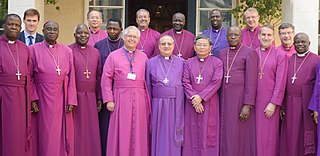
The Anglican Global South is a grouping of 25 of the 40 provinces of the Anglican Communion, plus the Anglican Church in North America and the Anglican Church in Brazil as the 26th and the 27th members.
The Church in the Province of the West Indies is one of 40 member provinces in the worldwide Anglican Communion. The church comprises eight dioceses spread out over much of the West Indies area. The present position of Archbishop and Primate of the West Indies is held by the current bishop of Jamaica, Howard Gregory. Gregory was elected as the thirteenth Archbishop of the Province by clergy and laity attending the 40th Synod of the CPWI at the Cascadia Hotel, in Port of Spain, Trinidad in May 2019. The position was previously held by John Holder who retired in 2018. Drexel Gomez was the primate before Bishop Holder until 2009. The church is also part of the Global South.
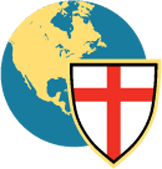
The Anglican Church in North America (ACNA) is a Christian denomination in the Anglican tradition in the United States and Canada. It also includes ten congregations in Mexico, two mission churches in Guatemala, and a missionary diocese in Cuba. Headquartered in Ambridge, Pennsylvania, the church reported 30 dioceses and 1,037 congregations serving an estimated membership of 134,593 in 2017. The first archbishop of the ACNA was Robert Duncan, who was succeeded by Foley Beach in 2014.

The Anglican Diocese of North East Caribbean and Aruba was formed in 1842 as the Diocese of Antigua and the Leeward Islands when the Anglican diocese of Barbados, then with the Diocese of Jamaica one of the two dioceses covering the Caribbean, was sub-divided. It celebrated its 175th birthday in 2017.
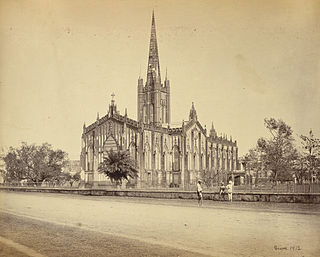
The Church of India, Burma and Ceylon (CIBC) was the autonomous ecclesiastical province of the Anglican Communion in British India.
The Archdeacon of Calcutta was a senior ecclesiastical officer within the Anglican Diocese of Calcutta, and dates back to the early 19th Century. As such he was responsible for the disciplinary supervision of the clergy within his part of the Diocese. It is now the Church of North India Diocese of Calcutta.
References
- ↑ Anglican Communion
- ↑ Project Canterbury
- ↑ "ABCD: a basic church dictionary" Meakin, T: Norwich, Canterbury Press, 2001 ISBN 978-1-85311-420-5
- ↑ Church of North India – The Diocess Archived 2010-06-19 at the Wayback Machine (Accessed 24 February 2015)
- ↑ The Clergy List for 1866 (London: George Cox, 1866) p. 433
